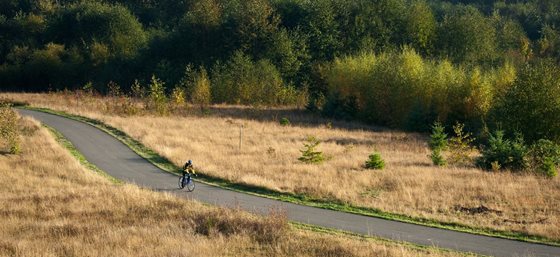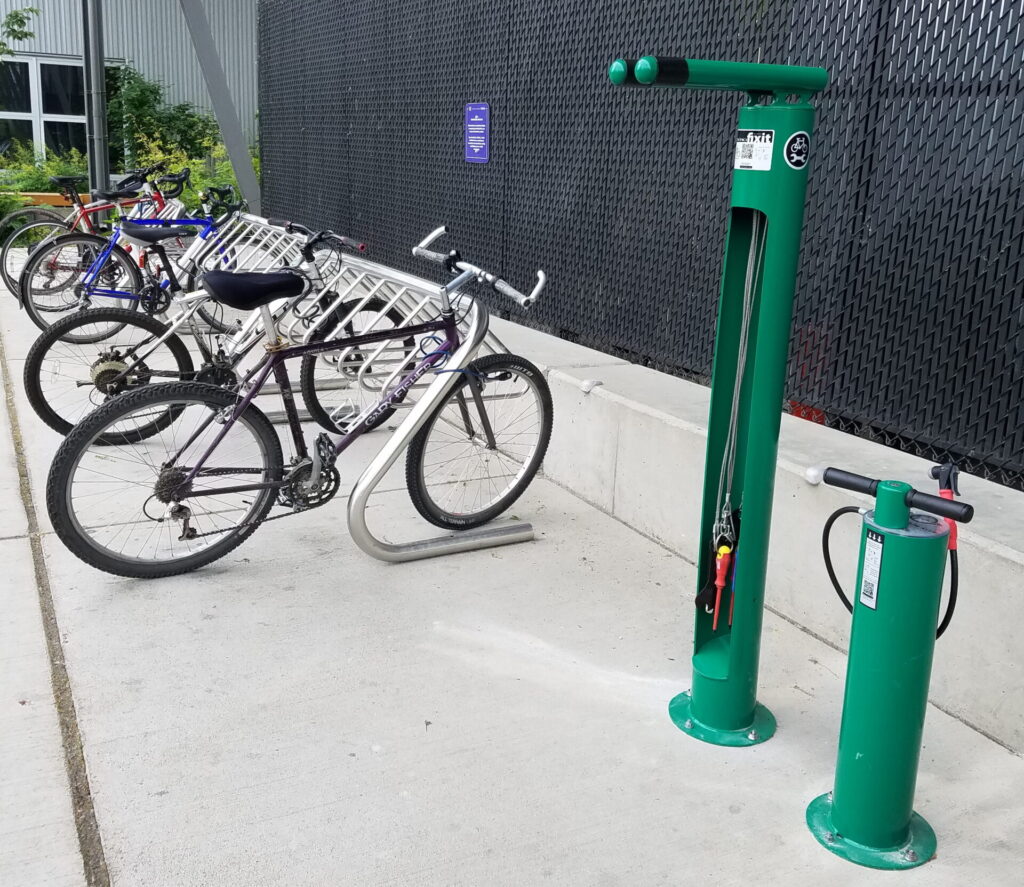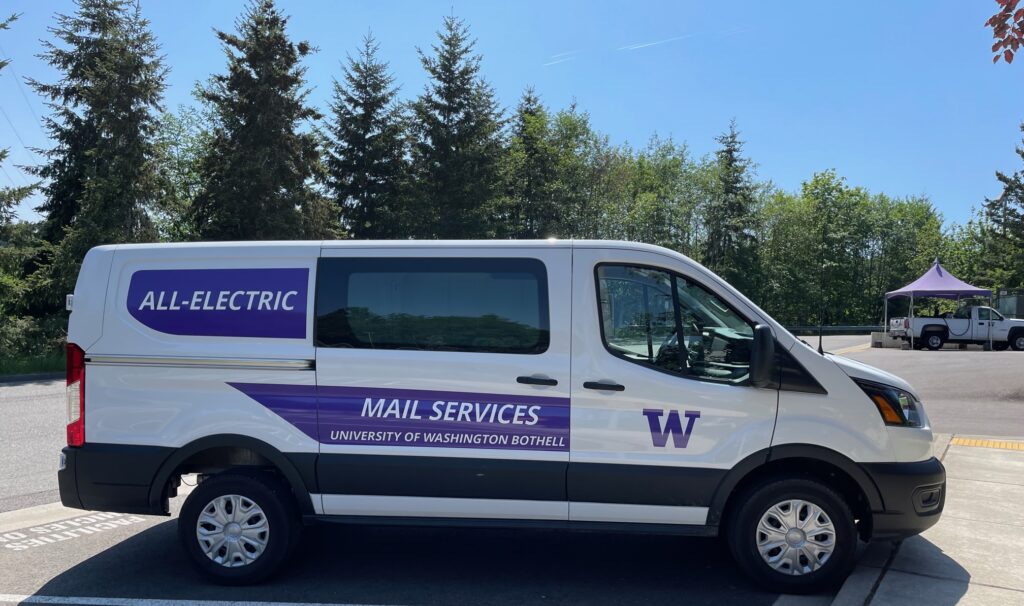Transportation

Impact
As a commuter campus, transportation has some of the largest environmental impacts. Transportation is the leading cause of greenhouse gas emissions in Washington, and remains one of the most difficult impacts to manage. Transportation impacts come from commuting, campus operations and employee travel. To reduce commuting impacts, UW Bothell promotes modes of transport other than single-occupancy vehicles through a variety of mechanisms. To reduce operational impacts, UW has established university-wide policies that require employees to take actions to reduce the extent of their impacts. Here are some initiatives that UW and UW Bothell are taking to reduce the impacts related to transportation:
Commuting
- Cycling is encouraged by offering secure bike storage (low cost bike lockers) and plentiful bike racks. Facilities Services recently installed 3 bike maintenance stations with bike pumps, bike stands, and tools to do simple bike repairs.
- UW Bothell partners with the City of Bothell to host a Bike to Work Day station each year in May.

- UW Bothell is situated on a regional bike trail, the Sammamish River Trail, which connects to the Burke-Gilman trail and over 70 miles of paved bike paths. This makes commuting by bicycle safe and accessible for people in many areas in the region.
- The UPASS is subsidized and considerably cheaper than parking permits, encouraging commuters to bus in and out of campus.
- Carpoolers have the benefit of splitting a parking pass multiple ways and are rewarded with prime parking spots.
- A ParkingSense parking guidance system was installed in the parking garages to reduce idling by making parking spot searching more efficient.
- UW Bothell partners with King County Metro, the City of Bothell, and the City of Woodinville on the Community Connections Partnership to improve alternative transportation services throughout the region.
- UW Bothell partners with bus service providers to maximize the amount of routes that come to the UW Bothell campus.
- EV charging is convenient and affordable on campus with 15 level 2 dual-headed ChargePoint stations located in the North Garage, Truly Lot, South Garage, and West Garage.

Campus Fleet
- Half of UW Bothell Facilities’ fleet is electric, including the campus safety patrol car and the campus mail delivery van.
- Of the nearly 700 UW vehicles, over 250 of them are ethanol flex fuel capable, 120 are hybrids, 5 are diesel-electric hybrid step-vans, and 24 all electric vehicles.
- Fleet services is committed to sustainability by constantly evaluating the university’s vehicle needs to assess the size of its fleet and “right sizes” to determine and implement alternative fuel vehicle usage wherever possible.
- 305 of Fleet Service’s vehicles fuel with B20 or higher biofuel and 244 of the vehicles fuel with B5 fuel.
- All diesel vehicles are being fitted with exhaust emission reduction devices to reduce harmful diesel exhaust emissions and particulate matter, which goes beyond state and federal requirements.
- In 2015, Fleet Services invested $1.3 million to build electrical charging infrastructure and stations to support university electric vehicles and public/commuter charging.
- The Fleet Services Division has a vehicle idling policy that reduces unnecessary transportation emissions that result from vehicle idling, which prohibits avoidable idling on campus.
- Regular sustainable fleet maintenance includes collecting spent tires and batteries for recycling, using re-refined oil in most vehicles, using non-CFC brake cleaner in inspections and repairs, and using only soap and high water pressure in the motor-parts washer.
